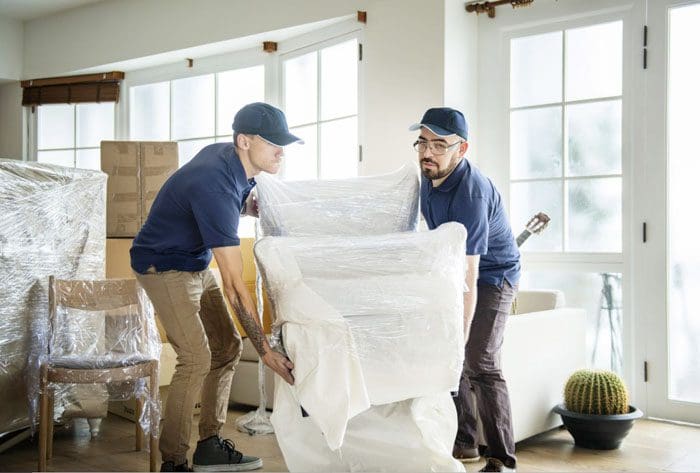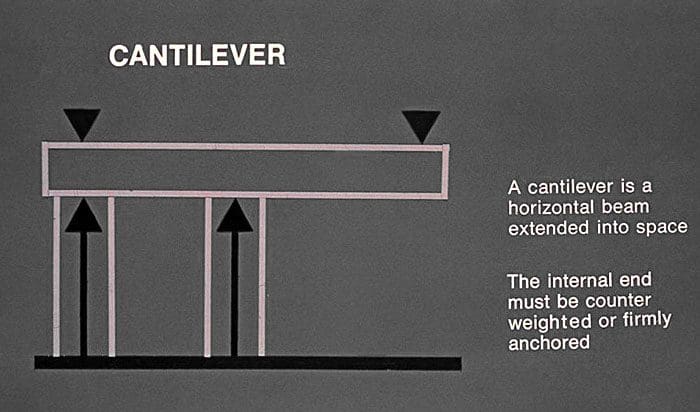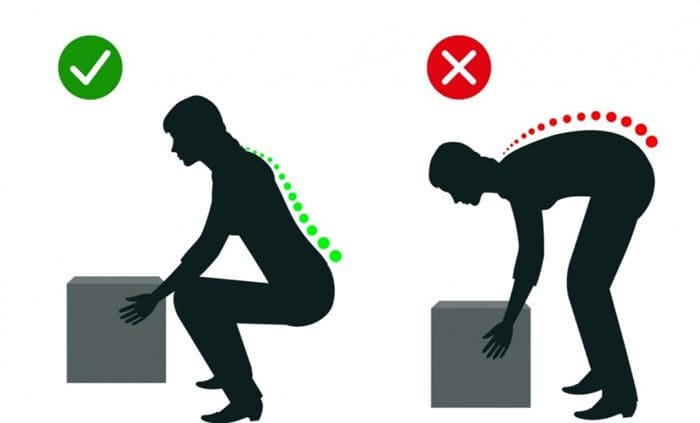I threw my back out. Most of us have heard and possibly experienced throwing our backs out. But, what does throwing out your back really mean? Find out from our experts. When talking about throwing one’s back out, it’s usually a result of twisting, turning, coughing, sneezing, or lifting incorrectly. The medical equivalent to this injury is an ankle sprain. It can be excruciating, individuals might not see or feel a tear, but the ligaments have been injured, causing inflammation and pain. The same thing can happen to the spine.

What it means when you throw out your back.
Most experience acute pain in the lower region of their backs. Individuals can throw out their back at any age doing all kinds of activities. These can range from:
- Changing a tire
- Moving lifting boxes, going upstairs, etc
- House chores/tasks
- Gardening
- Sports
- Working out
- Bending over to pick up an object
It is more common as individuals age. This is when individuals notice how they could take a serious injury and walk away when they were young. However, with age, something like a cough or sneeze could cause the back to become sprained. When the ankle is sprained, it is immobilized to allow it to rest and heal.
However, it is not as easy to immobilize the spine as large muscles in the back around the spine. Any time tissue is injured, the muscles automatically spasm to act as a splint. These spasms usually tend to be the worst part when back pain presents. This is because the back muscles are large; they cause intense inflammation and pain when they spasm. Combined with this, the back can feel like it is stuck, significantly decreasing the range of motion. This type of injury can take a couple of days to reduce and up to two to six weeks to return to normal function.
This is what is really happening
The majority of the time, what has happened is there is a small ligament strain or an annular tear, which is a tear in the ligament that connects the vertebra to the disc. When standing upright and lifting properly, the disc/s work like hydraulics.

When individuals bend over not using their legs, the back part of the spine widens/opens up, and instead of a hydraulic effect, it becomes a cantilever structure. Bending and twisting compound the pressure across the disc. Prevention is key and by using the legs and keeping the back straight, let the hydraulic system do its natural job.

Misconceptions
Chiropractors specialize in difficult to treat musculoskeletal pain conditions. The term threw out one’s back is similar to the knee, arm, shoulder being blown out. The terminology can create fear associated with the idea of throwing something out of place, especially when it comes to the spine. When individuals come in with back pain, they can become fearful of what will be found. These include:
- What has happened to my spine?
- Is it going to get better?
- Is this going to be a life-long injury?
- Will I be able to walk normally?
Through research, doctors now know that fear is an inflammatory response. Therefore, when individuals become fearful, their immune system kicks in, causing the pain to worsen.
Treatment
A few things have been proven to work well, along with seeing a doctor, spine specialist, or chiropractor.
Ice and heat
It depends on individual preference. Ice reduces inflammation and pain, and the heat helps to get the blood flowing in and around the area to help heal the injury.
Abdominal support
An abdominal corset is a stretchy band that is worn around the lower mid-section. The abdominal muscles supply support for the lower body. The corset can help take some of the weight off of the spine to help ease discomfort and pain.
Anti-inflammatories
Advil or a prescription Ibuprophen from a physician is better than narcotics. However, if narcotic medications are necessary, they should be short-term, a few days to a week. In addition, individuals need to show caution as they can cause constipation, making back pain even worse.
Chiropractic and Physical Therapy
Seeing a chiropractor and physical therapist can help heal the injury faster. They will strengthen the spinal muscles and educate the individual on stretches, exercise, posture, anti-inflammatory diet for optimal spinal health. Individuals usually take two to six weeks to heal completely. However, individuals should still be able to do most physical activities once the spine injury heals. Maintaining the back muscles can be achieved with regular exercise, lifting correctly with the legs, and not over-twisting and over-reaching are important elements to prevent back injuries.
Body Composition Analysis
Summer Heat and The Body
How the body reacts to extreme heat. It is a process known as thermoregulation, where the body strives to maintain a temperature between 97.7 to 99.5 degrees Fahrenheit. The hypothalamus, a gland in the brain, is in charge of managing the core temperature. If outside weather is extreme, causing a change in the body’s core temperature, the hypothalamus triggers a specific process to heat or cool the body back to the normal range. When the hypothalamus registers that the body’s core temperature is rising because it’s sweltering outside, it kicks in.
To remove the extra heat, the hypothalamus increases circulation, moving the blood toward the surface, dilating blood vessels so that the heat can dissipate through the skin. When this happens, the veins can protrude, and the skin flushes. Along with increased circulation, the hypothalamus also activates the sweat glands. The evaporation of the water released onto the skin cools the body down, reducing temperature. Finally, the thyroid is activated to lower heat created through the metabolic processes.
References
Disc tears: Stat Pearls. (11/17/2020).†Annular Disc Tear.†â€https://www.statpearls.com/ArticleLibrary/viewarticle/17615
Fear and Pain: Journal of Pain Research. (2018). “Assessments of Pain-Related Fear in Individual with Chronic Pain Conditions.†https://www.ncbi.nlm.nih.gov/pmc/articles/PMC6280906/
Mittinty, Manasi M et al. “Assessment of pain-related fear in individuals with chronic painful conditions.â€Â Journal of pain research vol. 11 3071-3077. 30 Nov. 2018, doi:10.2147/JPR.S163751
Post Disclaimer *
Professional Scope of Practice *
The information herein on "I Threw Out My Back, What That Means" is not intended to replace a one-on-one relationship with a qualified health care professional or licensed physician and is not medical advice. We encourage you to make healthcare decisions based on your research and partnership with a qualified healthcare professional.
Blog Information & Scope Discussions
Welcome to El Paso's Premier Fitness, Injury Care Clinic & Wellness Blog, where Dr. Alex Jimenez, DC, FNP-C, a Multi-State board-certified Family Practice Nurse Practitioner (FNP-BC) and Chiropractor (DC), presents insights on how our multidisciplinary team is dedicated to holistic healing and personalized care. Our practice aligns with evidence-based treatment protocols inspired by integrative medicine principles, similar to those found on this site and our family practice-based chiromed.com site, focusing on restoring health naturally for patients of all ages.
Our areas of multidisciplinary practice include Wellness & Nutrition, Chronic Pain, Personal Injury, Auto Accident Care, Work Injuries, Back Injury, Low Back Pain, Neck Pain, Migraine Headaches, Sports Injuries, Severe Sciatica, Scoliosis, Complex Herniated Discs, Fibromyalgia, Chronic Pain, Complex Injuries, Stress Management, Functional Medicine Treatments, and in-scope care protocols.
Our information scope is multidisciplinary, focusing on musculoskeletal and physical medicine, wellness, contributing etiological viscerosomatic disturbances within clinical presentations, associated somato-visceral reflex clinical dynamics, subluxation complexes, sensitive health issues, and functional medicine articles, topics, and discussions.
We provide and present clinical collaboration with specialists from various disciplines. Each specialist is governed by their professional scope of practice and their jurisdiction of licensure. We use functional health & wellness protocols to treat and support care for musculoskeletal injuries or disorders.
Our videos, posts, topics, and insights address clinical matters and issues that are directly or indirectly related to our clinical scope of practice.
Our office has made a reasonable effort to provide supportive citations and has identified relevant research studies that support our posts. We provide copies of supporting research studies upon request to regulatory boards and the public.
We understand that we cover matters that require an additional explanation of how they may assist in a particular care plan or treatment protocol; therefore, to discuss the subject matter above further, please feel free to ask Dr. Alex Jimenez, DC, APRN, FNP-BC, or contact us at 915-850-0900.
We are here to help you and your family.
Blessings
Dr. Alex Jimenez DC, MSACP, APRN, FNP-BC*, CCST, IFMCP, CFMP, ATN
email: [email protected]
Multidisciplinary Licensing & Board Certifications:
Licensed as a Doctor of Chiropractic (DC) in Texas & New Mexico*
Texas DC License #: TX5807, Verified: TX5807
New Mexico DC License #: NM-DC2182, Verified: NM-DC2182
Multi-State Advanced Practice Registered Nurse (APRN*) in Texas & Multi-States
Multistate Compact APRN License by Endorsement (42 States)
Texas APRN License #: 1191402, Verified: 1191402 *
Florida APRN License #: 11043890, Verified: APRN11043890 *
Verify Link: Nursys License Verifier
* Prescriptive Authority Authorized
ANCC FNP-BC: Board Certified Nurse Practitioner*
Compact Status: Multi-State License: Authorized to Practice in 40 States*
Graduate with Honors: ICHS: MSN-FNP (Family Nurse Practitioner Program)
Degree Granted. Master's in Family Practice MSN Diploma (Cum Laude)
Dr. Alex Jimenez, DC, APRN, FNP-BC*, CFMP, IFMCP, ATN, CCST
My Digital Business Card
RN: Registered Nurse
APRNP: Advanced Practice Registered Nurse
FNP: Family Practice Specialization
DC: Doctor of Chiropractic
CFMP: Certified Functional Medicine Provider
MSN-FNP: Master of Science in Family Practice Medicine
MSACP: Master of Science in Advanced Clinical Practice
IFMCP: Institute of Functional Medicine
CCST: Certified Chiropractic Spinal Trauma
ATN: Advanced Translational Neutrogenomics



